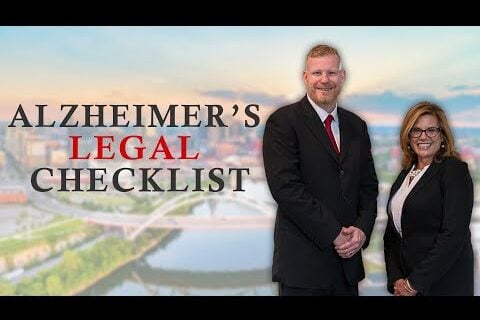Watching someone you love slowly forget the little things, a favorite song, the sound of your voice, or even who you are, is truly heartbreaking. Alzheimer’s does more than take memories. It reshapes lives, families, and futures. But there is real hope, and there are meaningful steps you can take right now to protect their wishes, their dignity, and your family’s peace of mind.
When someone is diagnosed, certain legal documents become absolutely essential. These are not just pieces of paper. They protect your loved one’s wishes and secure the future for everyone involved. Let’s walk through the documents that matter most.
1. Durable Power of Attorney for Finances
This document allows a trusted person to handle bills, banking, and financial decisions when your loved one is diagnosed with Alzheimer’s or dementia and can no longer manage them. Without it, families can face confusion, delays, and even frozen accounts. It is one of the most important tools for preventing financial chaos later.
2. Healthcare Power of Attorney
A healthcare power of attorney gives someone your loved one trusts the legal authority to make medical decisions if they cannot speak for themselves. You want a person who understands their values and will honor their wishes when care decisions become difficult due to Alzheimer’s or dementia.
3. Advance Directive for Healthcare
This document spells out what treatments your loved one does or does not want. It removes guesswork during emotional moments and ensures that their wishes are always respected. Families often say this brings tremendous peace of mind when a loved one is diagnosed with Alzheimer’s or dementia.
4. HIPAA Authorization
Many families overlook this step. A HIPAA authorization allows doctors to share medical information with family members or caregivers. Without it, critical information can be withheld, which makes coordinating care much harder.
5. Will or Living Trust
A Will or Living Trust is about far more than dividing assets. A Living Trust can help avoid probate and make sure property and personal belongings go exactly where your loved one intended. It also reduces family conflict during an already stressful time.
6. Conservatorship Planning
If your loved one eventually loses the ability to make decisions, conservatorship may become necessary. Planning early can help avoid messy court battles and limit disputes among family members.
7. Long-Term Care and Medicaid Planning
Long-term care can be incredibly expensive. Early planning helps families protect their savings, determine eligibility for benefits, and make sure the care your loved one needs will be covered when the time comes.
What Happens When Families Wait Too Long
Let me share a real situation that shows why timing matters in cases where Alzheimer’s or dementia are a concern.
A daughter once brought her mother to our office in a wheelchair, insisting that her mother wanted to change her estate plan and even disinherit a child. Something felt off. After speaking with the mother privately, it became clear that she no longer had the mental capacity to make changes to her legal documents.
At that point, very few adjustments could be made. We referred them to an attorney who handles conservatorships, but even that process is limited and expensive, and the family was already in conflict.
Had they come to us earlier, when the mother entered the nursing home or even at the first diagnosis, we could have created a plan to protect her assets, guide her care, and avoid the stress and division the family later faced.
Waiting too long left them with very few options and a great deal of heartache.











